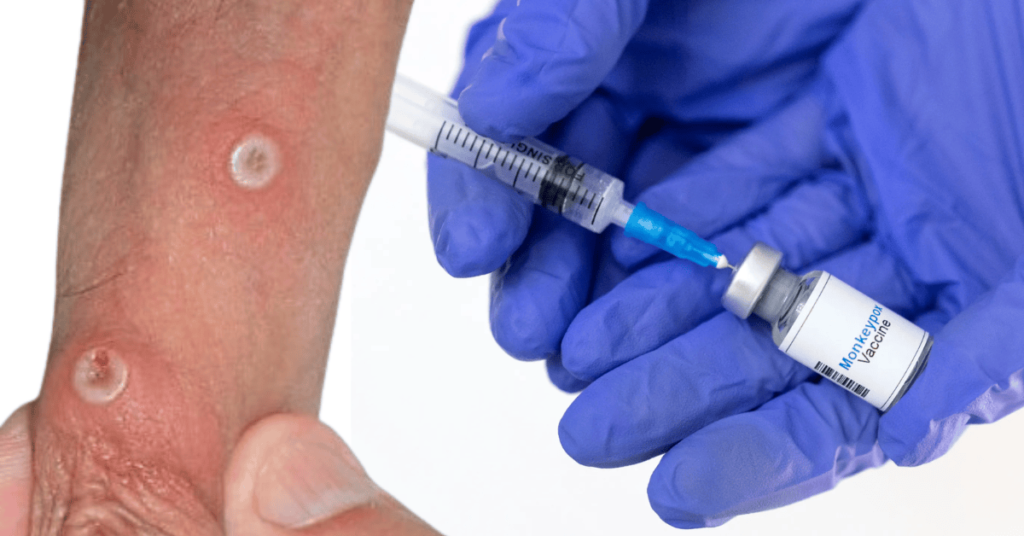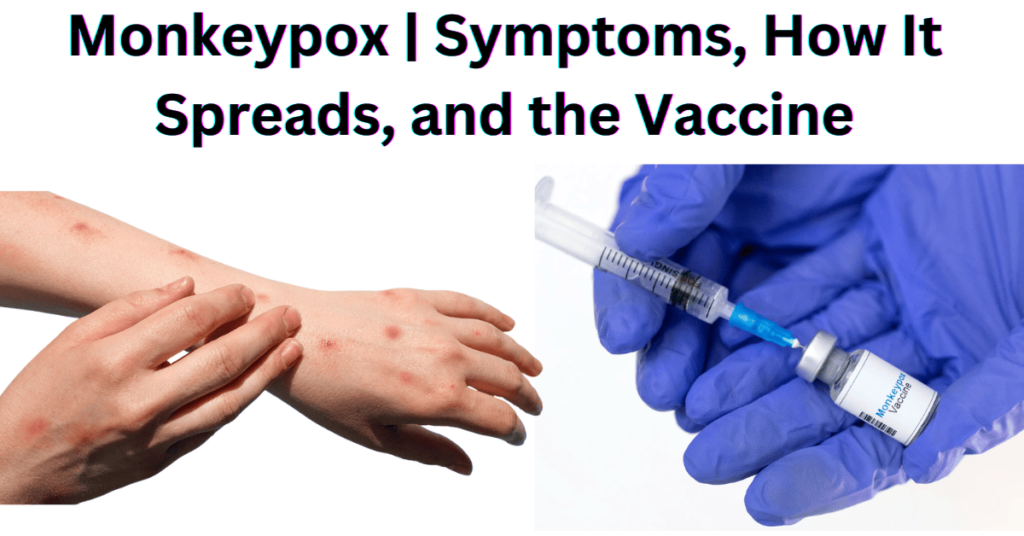Monkeypox is a viral illness that has become more well-known in recent years. The disease was first found in monkeys, which is why it’s called “Monkeypox” It’s caused by the monkeypox virus, which is similar to the virus that causes smallpox. In this post, we’ll explain the symptoms of monkeypox, how it spreads, and why the monkeypox vaccine is important.
What is Monkeypox?
Monkeypox is a rare illness caused by the monkeypox virus. It was first discovered in 1958 when monkeys in a lab got sick with a pox-like disease. The first human case of monkeypox was found in 1970 in the Democratic Republic of Congo.
Monkeypox Symptoms
The symptoms of monkeypox are similar to those of smallpox but are usually not as severe. They usually show up about 7-14 days after being exposed to the monkeypox virus. The first symptoms include fever, headache, muscle aches, and feeling very tired. One of the most noticeable signs is a monkeypox rash, which often starts on the face and then spreads to other parts of the body.

The rash goes through different stages, starting as flat red spots, then turning into raised bumps, then blisters, and finally scabs that fall off. Sometimes the rash can look like other illnesses, so it’s important to see a doctor to get the right diagnosis.
How Does Monkeypox Spread?
Monkeypox spreads mainly through direct contact with the bodily fluids, respiratory droplets, or skin lesions of an infected animal or person. It can also spread by touching things like bedding or clothing that have been contaminated by the virus.
While monkeypox can spread from person to person, this is less common. However it can happen through close physical contact, especially in healthcare settings or within households. Knowing how monkeypox spreads helps in preventing the disease.
Why the Monkeypox Vaccine is Important
Because monkeypox can be a serious illness, getting vaccinated is a key way to prevent it. The monkeypox vaccine is similar to the smallpox vaccine, which has been proven to work well against monkeypox because the two viruses are closely related.
In the United States, the JYNNEOS vaccine, also known as the mpox vaccine, is approved to prevent monkeypox. It’s recommended for people who are at high risk, such as healthcare workers or anyone who might come into contact with the monkeypox virus.
Where to Get the Monkeypox Vaccine
If you need the monkeypox vaccine, you can find it at various places, including big pharmacy chains like CVS. Many local health departments are also offering the vaccine, especially in areas where there have been monkeypox cases. To find out where you can get the monkeypox vaccine, check with your local health department or visit the CVS website.
Why You Should Get Vaccinated
Getting vaccinated against monkeypox is important for stopping the spread of the disease and protecting those who are most at risk. Even though monkeypox is generally not as dangerous as smallpox, it can still cause serious discomfort and complications, especially in people with weakened immune systems.
By getting vaccinated, you’re not only protecting yourself but also helping to prevent the spread of the monkeypox virus in your community.
Frequently Asked Questions (FAQs)
What is Monkeypox, and how did it get discovered?
Monkeypox is a rare virus that causes an illness similar to smallpox, though it’s usually less severe. It was first found in 1958 when monkeys in a lab got sick with a pox-like disease. The first case in a human was reported in 1970 in the Democratic Republic of Congo.
What are the symptoms of monkeypox?
Symptoms of monkeypox typically start showing 7-14 days after you’ve been exposed to the virus. Early symptoms include fever, headache, muscle aches, and feeling very tired. A noticeable rash usually appears on the face first and then spreads to other parts of the body. The rash goes through different stages, starting as flat spots, then bumps, blisters, and finally scabs that fall off.
How does monkeypox spread?
Monkeypox mainly spreads through direct contact with the bodily fluids, droplets, or skin sores of an infected person or animal. It can also spread by touching things like bedding or clothes that have the virus on them. While it’s less common, the virus can also spread from person to person through close physical contact, especially in healthcare settings or at home.
Why is the monkeypox vaccine important, and who should get it?
The monkeypox vaccine is important because it helps prevent the illness, which can sometimes be serious. In the U.S., the JYNNEOS vaccine, also known as the mpox vaccine, is approved and recommended for people at higher risk, like healthcare workers or anyone who might be exposed to the virus.
Where can I get the monkeypox vaccine?
You can get the monkeypox vaccine at places like big pharmacies, such as CVS, or through your local health department. To find a location near you, check with your local health department or visit the CVS website. Getting vaccinated helps protect both you and your community from the spread of the virus.



